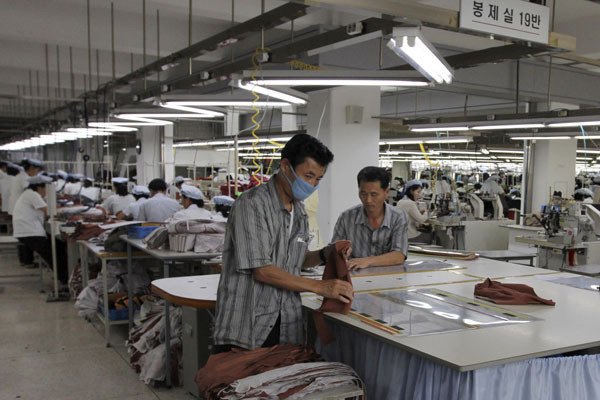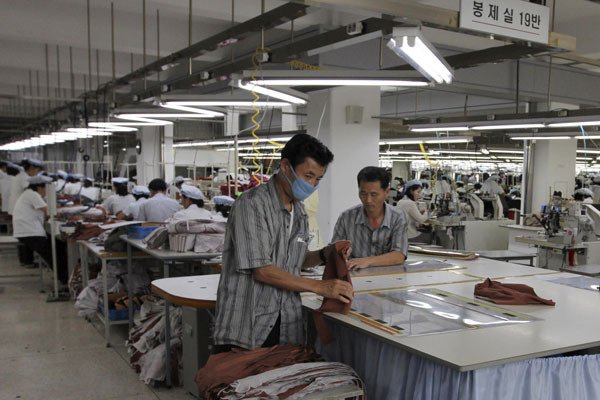North Korea has announced it is cutting two key communication hotlines with South Korea, amid rising tensions after Pyongyang’s recent rocket and nuclear tests.
The move comes after South Korea suspended its operations at the jointly-run Kaesong industrial park in North Korea.
Kaesong complex is one of the last points of co-operation between the two Koreas and a key source of revenue for Pyongyang.
North Korea has called the shutdown “a declaration of war” and has designated Kaesong as a military zone.
South Korea says the suspension is aimed at cutting off money North Korea uses for nuclear and missile development.
Pyongyang carried out its fourth nuclear test last month, and launched a satellite into space on Sunday, drawing international condemnation.
North Korea previously cut communication hotlines with the South in 2013, but reopened them after relations improved.
The hotlines, which are intended to defuse dangerous military situations, include one used by the military, and another used to communicate with the UN Command at Panmunjom in the Demilitarized Zone (DMZ). A third hotline is maintained by the Red Cross.
On February 11, North Korea vowed to seize the assets of South Korean companies in Kaesong, and said all workers from the south had to leave by 17:30 local time.
South Korean companies had already started withdrawing managers, equipment and stock after Seoul announced the suspension.
According to South Korean officials, all 280 workers who had been at the facility finally crossed into the South several hours after the deadline expired.
The current Kaesong shutdown came as the US Senate voted unanimously in favor of tougher sanctions against North Korea.
The draft legislation targets any person or entity trading or financing anything related to weapons of mass destruction, conventional arms proliferation, North Korea’s nuclear program, money laundering, narcotics trafficking, human rights abuses, activities that threaten US cyber security, and the import of luxury goods.
All were already sanctioned, but the measures aim to tighten the restrictions.
The bill also authorizes $50 million for radio broadcasts into North Korea and humanitarian aid programs.
The House of Representatives passed a similar bill last month. The two will now have to be reconciled into a final measure needing President Barack Obama’s sign-off.
